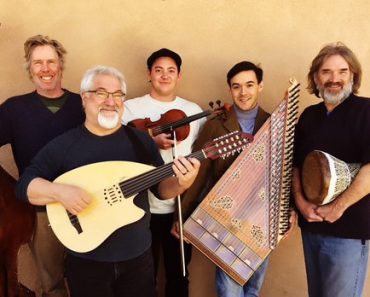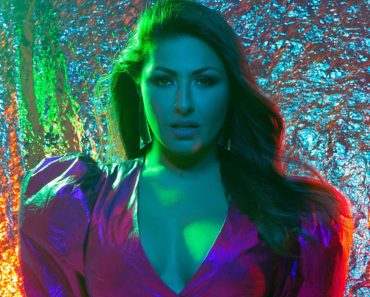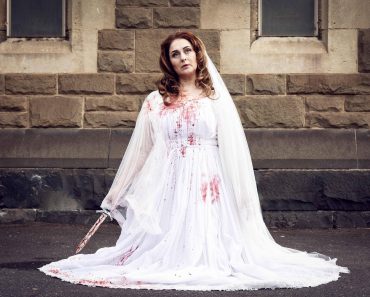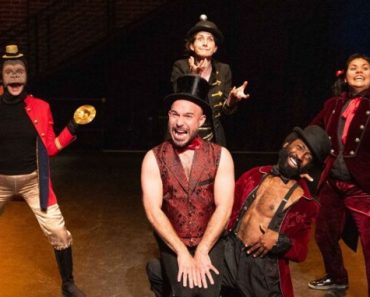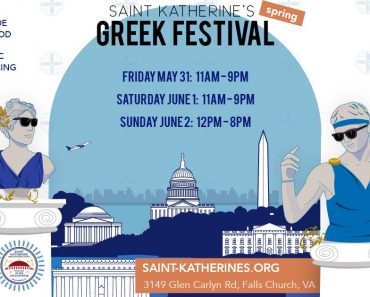Music was a one-way street for Dimitris Nassios. He can’t remember a time when he wasn’t humming melodies that were circling in his brain. He tried various other occupations, but when he turned 27, he quit and decided to pursue a music career.
The need to create music overpowered anything else. It acted as his own personal therapist, where he could take all his frustrations, disappointments, and, of course, happy moments and put them in a song.
Another factor that came into play was the economic recession that hit Greece around 2008, which gave him a new perspective on work and how fragile it is. He would instead take a risk on his dreams than someone else’s.
The National Herald: Introduce us to your family.
Dimitris Nassios: I come from a big family. My dad, Thimios. My mum, Marianna, my two sisters, Calliope and Sophia, and last but certainly not least, my little brother Constantine.
TNH: How did your music develop as you evolved as a person?
DN: In my 20s, life was simpler. I was perhaps more naive, so my music was about parties, young love, and trying to fit into my own skin. Not to say that there were no lows. I clearly remember when my grandmother passed away and coming to terms with the fact that I’ll never see her again. It made no sense that the people we love can leave us forever. Still doesn’t, to be honest. I tried to express my sorrow through music, but I wasn’t ready. I didn’t have the scars I needed to write something from the heart, as strange as that may seem. The alias I used back then was Quasamodo. This was not a derogatory term. I just always related to the character Quasimodo. It was a lesson in never judging a book by its cover and realizing that beauty lies in the most unexpected places. At some point, I wanted to use it as a Username while registering on a webpage, and I spelled the name wrong, so I rolled with it. That, too, was a lesson in embracing my mistakes and making the best of them, I guess.
Youtube Link:
Quasamodo – My Friend Is Blue feat. Thaliah
https://www.youtube.com/watch?v=e7Dg_RgW5fccat
In my 30s, I started feeling different. I couldn’t relate to my 20-year-old self. He seemed immature, naive, and at times cocky. That was when I formed my next project, The Smokey Bandits, with my friend George Fotiadis. My sound had clearly changed, and it was now up to the instruments to do the ‘talking’. No more vocals and lyrics. It was just melodies that made me feel something. Hopefully, it makes someone else who heard them feel something. During those two years of writing this album, I realized that whenever my vocabulary can’t articulate my emotions, I should let the music do the talking.
Youtube Link:
Smokey Bandits – A Son’s Lament
https://www.youtube.com/watch?v=aEa_Kfd9v-s
I am now in my 40s. “No better time to start a new album and reinvent myself,” I thought. That’s when I formed the musical collective Man Called Shadow with another close friend, Leo Tasios, and we started writing about the beautiful things we can see in life that become visible through our scars. That’s when I met Alex Sidiropoulos, the person who gave me my big break on television when he asked me if I wanted to write the soundtrack of the series ‘The Beach’ (Η Παραλία – ERT1) with him. I decided to use the alias Quasamodo once again because I missed that naivety and hopefulness I had in my 20s. Or the fun I had making music because everything was unknown and new. It’s funny how we change and leave parts of us behind. I’m grateful that I made music my whole adult life because I can hear that music today and be reminded of who I was, what I was thinking, and how I felt. It’s a great reminder when you hear one of your old songs you wrote about some bad experience you had and realize that you’ve healed from that. That it was just temporary.
Youtube Link:
Man Called Shadow performs Broken Song @IFS for Athens Voice
https://www.youtube.com/watch?v=m2PSyioVjns
TNH: What distinguishes your television hit?
DN: Writing the soundtrack for ‘The Beach’ has been one of the highlights of my career, not because of its success but because I got to work with one of my best friends, Alex, and trade thoughts and ideas with each other. About two days after the series premiered, our title song, ‘Blazing’, was no. 1 in Shazam searches on YouTube’s trending and on the iTunes charts simultaneously. We were so excited to see that a Greek audience embraced an English song through the power of music.
Also, we just finished writing a song for the series featuring Eric Burdon, which will be released on the 5th of February. This was a dream come true for me as I got to work and become friends with my childhood hero. I still remember as a kid trying to work out the chords to his songs and play along. Cut to today, and we’re sitting in the studio with him, working out our song and listening to his stories in awe. I can’t wait for people to listen to it, as we are incredibly proud of the outcome.
Youtube Link:
Alex Sid & Quasamodo – Blazing (Paralia Soundtrack Official Audio)
https://www.youtube.com/watch?v=hZl5qpO6PWU
TNH: Music spurts out all our feelings. Is it an excellent way to dig deeper into our souls?
DN: Absolutely. As much as I love writing and working out my issues through writing, I also love listening to music. Music has a remarkable ability to tap into our emotions and express feelings that might be difficult to articulate otherwise. It can be a powerful tool for self-expression, introspection, and exploring our innermost thoughts and emotions. Whether it’s through lyrics that resonate with our experiences, melodies that evoke specific feelings, or rhythms that sync with our emotional states, music can provide a safe outlet for processing and understanding our inner world.
Lately, I have been reading about the Solfeggio Frequencies and how these frequencies can heal us. I’m not sure what is true and what isn’t, but it’s certainly a good read.
TNH: Do we escape trauma by confronting it?
DN: Yes, I believe we can escape trauma by confronting it, but that’s not always possible. For some individuals, confronting trauma through music can help them process their experiences, gain a sense of control, and eventually find healing and resilience. However, for others, confronting trauma with music or any other way may not be the best approach at a particular time, or it may not be possible due to various factors such as safety concerns, or they simply may not be ready.
TNH: What do you love the most?
DN: As cliche as it may sound, I’m happiest making music with my friends. It’s one of the few moments in life where two or more people can occupy the same space and time simultaneously and create something that comes from many souls rather than just your own.
I love my family and friends the most because they’re the ones who pick me up and give me the strength and will to go on when things get hard. They are also the ones I want to dance with when things are good!


